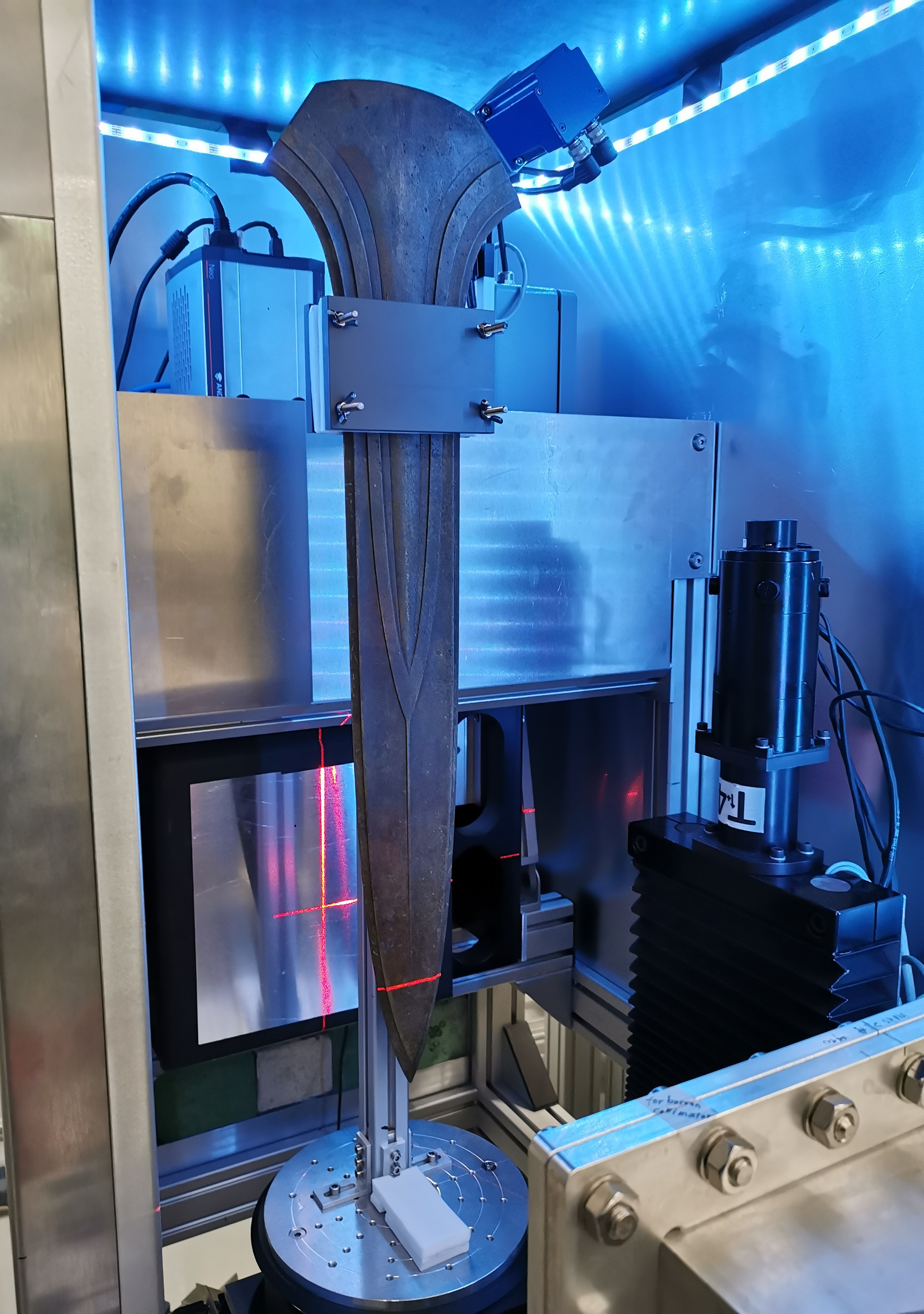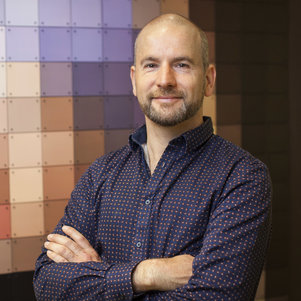Taking a look at the 3,000-year-old sword
The Ommerschans sword is one of the most important pieces from Dutch prehistory and is part of the collection of the Dutch National Museum of Antiquities. This extraordinary sword has now been examined at the TU Delft Reactor Institute, in search of information about its composition and method of making.
Rare object
The Ommerschans sword dates from the Bronze Age (c. 1500-1300 BC) and was found in 1896 during peat extraction near Ommen. It is a very rare object; to date, only five almost identical swords have been found in England, France and the Netherlands. They are exceptional objects because they are too large (about 70 cm) and heavy (about 3 kg) to fight with. They also never had a grip attached and the swords were never sharpened. They were probably ceremonial weapons that played a powerful symbolic role in Bronze Age society.
Besides size and weight, what is most striking is the beauty and symmetry of the object and its clean lines. At the time, as now, casting something like this must have been a great challenge and it is undoubtedly the product of an exceptionally skilled blacksmith.
Looking into the sword
With the research in Delft, it is possible to literally take a look inside the sword in 3D, without having to take a sample and thus touch the sword. Using so-called neutron tomography and gamma spectroscopy, the researchers were able to obtain the internal structure of the sword and a signature of the composition of the bronze. This provides information about this rare group of swords as a whole and seems to confirm that they were made from a similar stock of bronze. Where this was is still being investigated, but it was probably in southern England.

Heritage research
The results will be published soon. The research is a collaboration between TU Delft, the Dutch National Museum of Antiquities (RMO) and Leiden University. It shows how we can use new techniques to investigate thousands of years-old heritage in a non-destructive way.
More information
TU Delft Reactor Institute
Assistant Professor, Lambert van Eijck L.vanEijck@tudelft.nl
Femke Werkman, Advisor Communication fmwerkman@tudelft.nl
M +31 (0)6 43287791

